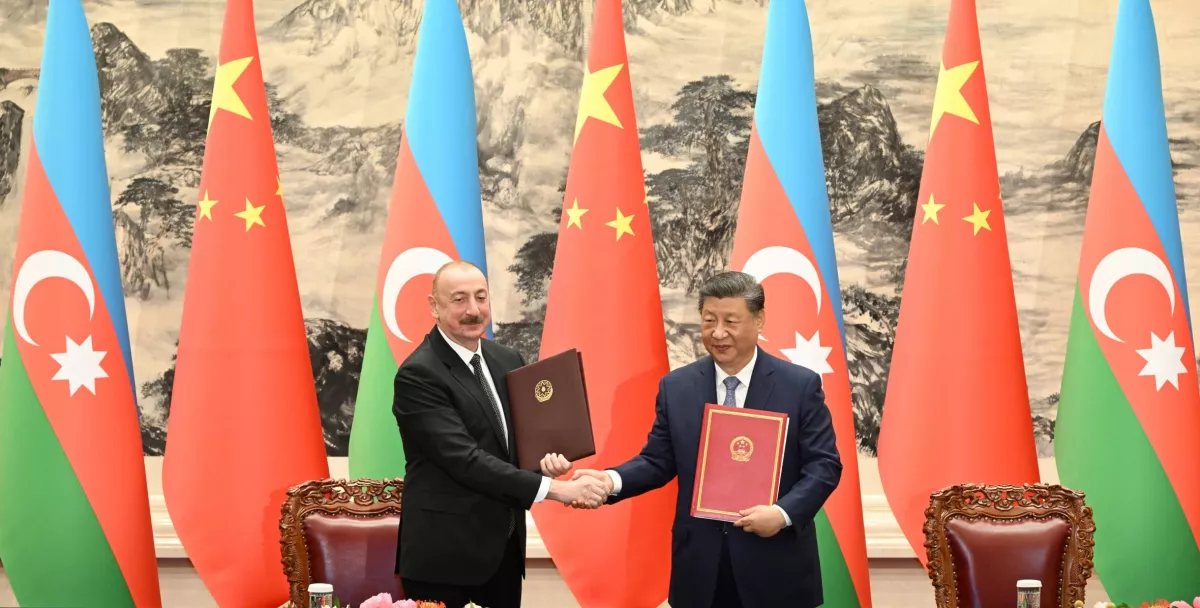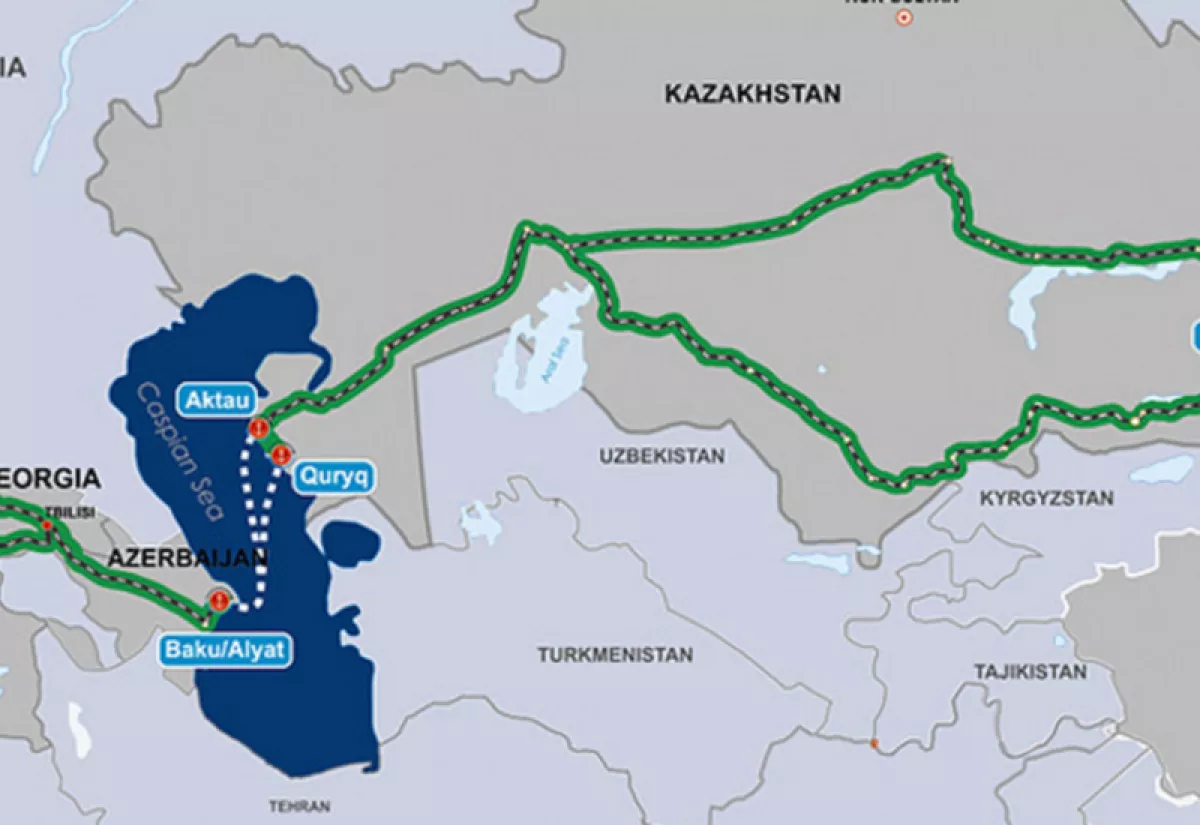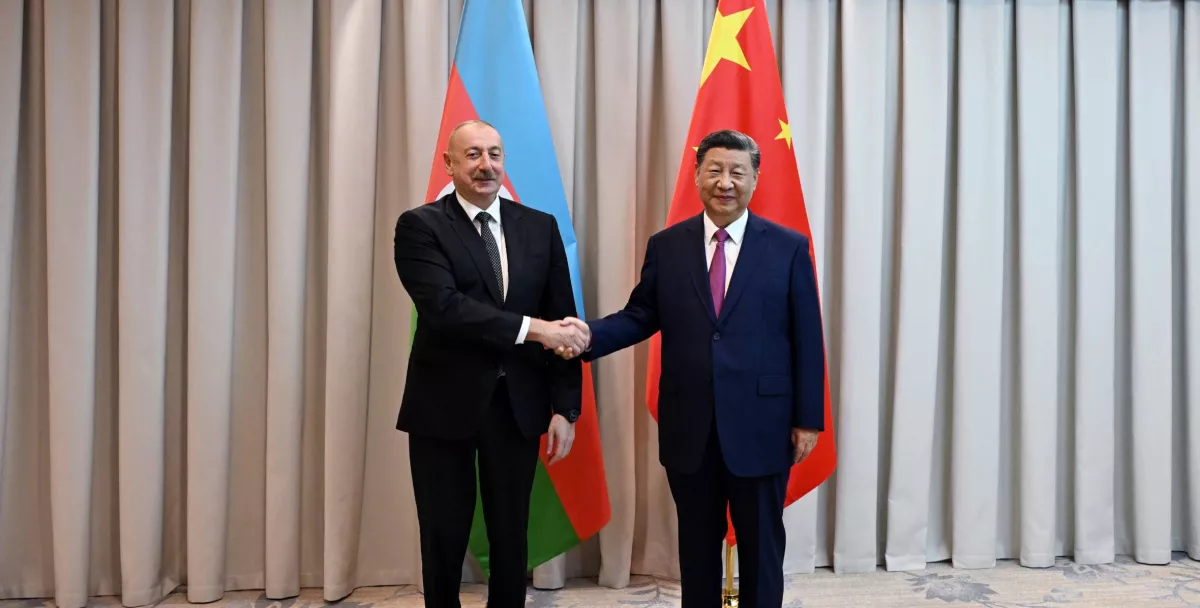Silk bridge: Baku and Beijing build a strategy for the future Trade, tech, trust
Connected by the ancient Silk Road for centuries, China and Azerbaijan are actively strengthening their ties today. This topic was highlighted during the meeting between Azerbaijani President Ilham Aliyev and participants of the 3rd Shusha Global Media Forum, held in Khankendi, under the theme “Digital Pathways: Strengthening Information and Media Resilience in the Age of AI.”
In response to a question from a representative of the Baku office of China's Xinhua News Agency, the President stressed that Azerbaijani-Chinese relations have reached a high level of mutual trust, with the economic dimension marked by multi-vector cooperation.

A significant impetus for the development of Azerbaijani-Chinese relations came from the Memorandum of Understanding between the Government of the Republic of Azerbaijan and the Government of the People's Republic of China on Joint Promotion of the Silk Road Economic Belt, signed in December 2015 during President Ilham Aliyev’s visit to China. Since then, trade turnover between China and Azerbaijan has grown steadily—from $561 million in 2015 to $3.744 billion in 2024.
Following Azerbaijan's victory in the Patriotic War in autumn 2020, Beijing's interest in the South Caucasus region increased even further, due to emerging opportunities—particularly the development of a trade route to Europe through Azerbaijan and Georgia, bypassing Russia. The imposition of sanctions on Russia following the war in Ukraine has made the use of its extensive railway network—formerly the main overland route from east to west—problematic.
China is committed to supporting the development of this alternative corridor, which aligns with Baku’s interests, as Beijing intends to prioritise this route in its trade with Europe. Azerbaijan, in turn, hopes for direct Chinese investment in physical infrastructure development, which would enhance competitiveness and demonstrate China’s long-term commitment to the project.

In October 2023, the national railways of Kazakhstan, Georgia, and Azerbaijan agreed to establish a joint venture aimed at developing multimodal transportation along the Trans-Caspian International Transport Route. The initiative seeks to provide one-stop-shop services and coordinate policy efforts for enhancing multimodal freight traffic along the China–Europe / Türkiye–China corridor. This cooperation has significantly reduced cargo delivery times between China and Europe.
A key area of bilateral cooperation has been China’s support for Azerbaijan’s full accession to the World Trade Organization (WTO)—a process that began in 1997 and is still ongoing. On January 13–14, 2025, the first round of bilateral negotiations between China and Azerbaijan on the country’s WTO accession was held in Baku. Last month, Baku and Beijing concluded talks on goods and services within the framework of the accession process.

In 2024, Azerbaijan became China’s strategic partner in the South Caucasus. On July 3, during the SCO summit in Astana, the two countries signed a “Joint Declaration on the Establishment of a Strategic Partnership between the Republic of Azerbaijan and the People’s Republic of China.” As a result, trade turnover between Azerbaijan and China grew by 20.7% compared to 2023, reaching $3.744 billion. China thus became Azerbaijan’s fourth-largest trading partner, accounting for 7.9% of the country’s total foreign trade and ranking first in imports with a 17.69% share.
The Chinese telecommunications giant Huawei was one of the first multinational tech corporations to invest in Azerbaijan, and a growing number of Chinese companies are now following suit. Currently, 375 companies with Chinese capital are registered in Azerbaijan, of which 298 are actively operating. Meanwhile, several Azerbaijani trade houses have opened in various Chinese cities.
Among Baku’s strategic priorities are investments in electric vehicle production, digitalisation, and renewable energy. Chinese energy companies are already participating in renewable energy projects, and later this year, Chinese firm BYD will launch electric bus production in Azerbaijan.

A significant contribution to the development of Azerbaijan–China relations will come from the introduction of a visa-free regime between the two countries, which will undoubtedly boost the intensity of bilateral contacts.
On April 23, 2025, during the state visit of Azerbaijani President Ilham Aliyev to China, the Azerbaijan–China partnership reached a new milestone with the signing of a Joint Statement on the Establishment of a Comprehensive Strategic Partnership. This agreement encompasses cooperation in politics, economics, security, and culture.
Baku is also strengthening its role in China’s strategic engagement with Central Asia, positioning itself as a bridge between the region and the Caucasus. Azerbaijan is advocating for the expansion of the “5+1” cooperation format between China and the five Central Asian states (Kazakhstan, Kyrgyzstan, Tajikistan, Turkmenistan, and Uzbekistan) to a “6+1” format, with Azerbaijan’s inclusion.
The relationship between the Republic of Azerbaijan and the People’s Republic of China serves as a compelling example of how two geographically distant countries can establish a partnership grounded in mutual respect and trust. This, in turn, reinforces Baku’s status in the region as a country capable of fostering multi-vector ties with major global powers.








